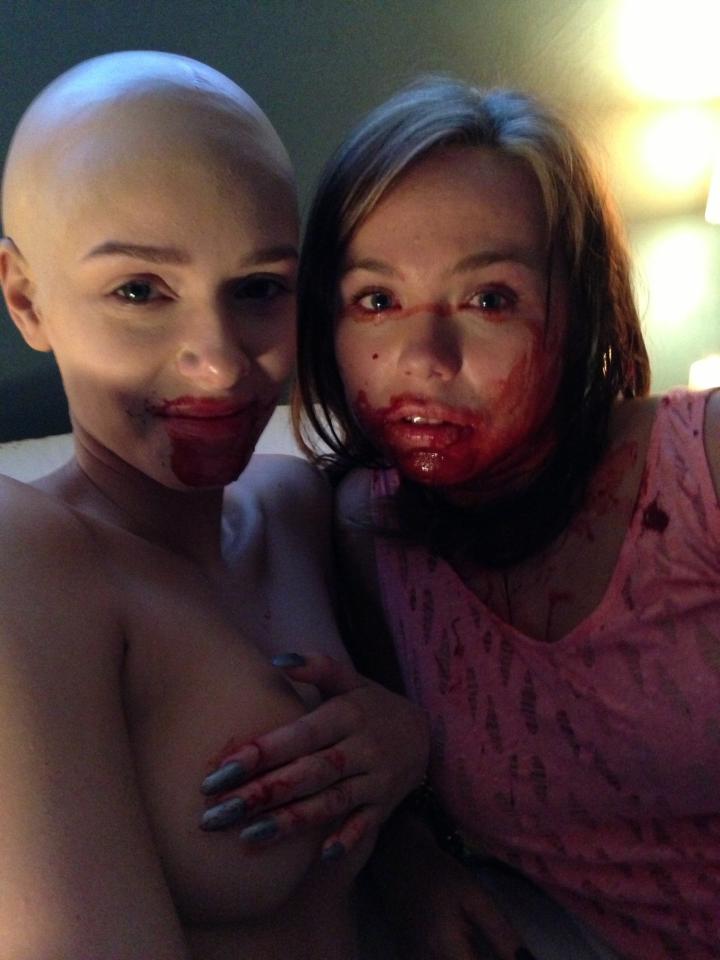R: Tin Can Man by Ivan Kavanagh and starring Michael Parle is my fav MUFF film. I am working with Parle in October, he’s flying out to be in my new film. Then The Magician by Scott Ryan is another highlight, which Nash Egerton got involved in later down the line. But The Perfect Nonsense on Opening Night this year at MUFF is another recent fave.
CP: How abreast do you keep with other “underground” genre-based film festivals within Australia? Do you see MUFF as being an exception, or ahead of the field? How relevant is the “underground” scene in Australia?
R: I like breasts - boom tish! But I think as I said that MUFF, SUFF, A Night Of Horror, Revelation, and Monsterfest are the happening indie fests down under now. MIFF and SIFF continue to do what they do with a large budget, play a section of decent overseas art house films, but their Australian sections are rather weak and woeful some years. MUFF is a proud Nationalist Film Festival, as in we are an openly supporting Aussie cinema festival.
CP: What elements should an “underground” film festival strive to highlight and champion?
R: I don’t really give a shit about definitions. To me “underground” is the NEW word for “indie”, whereas Sundance films all star George Clooney and Brad Pitt and are not real “indie” anymore. Underground film festivals these days play the REAL indie films, that’s even changing as SUFF mainly play commercial genre cinema, for example. It’s NOT what it used to mean, i.e the films of Jonas Mekas and Kenneth Anger say, though they are still a part of it. At MUFF it is low budget to micro budget genre cinema mostly. That’s what we foster, like and promote mostly and many of these filmmaker go on to ACTUAL careers - I know unheard of I know - unlike filmmakers MIFF and SIFF promote, who are mostly all PC wankers, funding leeches, pals of funding people and gender ring ins with no actual talent, or even calling for cinema or deep knowledge of it. etc.
CP: As an independent filmmaker yourself what key elements are most important when making your own short or feature? What mistakes do you see being made by other filmmakers?
R: The cast is all on a low budget film and just being prepared, you don’t need big crews or fancy cameras or sound mixes. Just get out there and do it, and have something to say and express. THINK! And be AGGRESSIVE.
CP: You have a very strong and opinionated view of politics, and frequently stir the pot on social media for reaction, do you think it’s important for politics to influence a film festival? What about politics within the arts culture, should the two be kept separate, or do you see them as inherent bedfellows?
R: Yes, I’m the Facebook troublemaker from Hell and even troll at times to stir the pot. My politics are acquired taste, and are a mix of Left and Right ideas. The new movement - The Alt Right - a Western Society advocating movement connected to Trump I have written a few articles and film reviews for. But all this only marginally effect the actual programming of MUFF, which is just a bit punk, DIY, genre, cheeky non-PC, and just get to it. I don’t think my own personal politics is that relevant to the actual content of the festival. People who try and link the two as inherently connected are misguided.
CP: Where do you see MUFF in the next five years? What personal film projects do you have on the boil?
R: I plan to make three genre features in two years. The first is The Debt Collector. it shoots from mid October. Then two after that, one is a REAL hot tomato. Hoping after these slate of indie movies I’m making, that someone might realise I am the genius I am; Von Trier, Tarantino, Malick and Ken Russell blended in a Cronenberg fly pod, and give me some proper budgets we can really begin to cook. "Nothing stops this train," as Walter White said. I also wish to enable a slate of one hundred grand features from the best MUFF, Rev, Monsterfest and SUFF filmmakers to get a whole New Vanguard in Australian Cinema movement going. We juts need about $100 to 200k per film from the funding bodies or private sources, to totally transform this industry in two or three years.
CP: What are some of your favourite movies? Has your taste in film changed much over the past twenty years?
R: My favourite film is Barry Lyndon by Kubrick, but I have a vast film taste and knowledge of it. If… by Lindsay Anderson is a big influence and the films of Ken Russell. Maidstone by Norman Mailer I saw recently that impressed the hell out of me.
CP: What filmmakers and actors do you admire? Why?
R: Terrence Malick, David Lynch, Herzog, Cronenberg, Von Trier, Winding Refn, Michael Mann, Scorsese, De Palma, Kubrick, Bunuel, Hitchcock, Pasolini, John Ford, Peckinpah, Tarantino. Ken Russell, they’re all geniuses.
CP: Thanks Richard!
Melbourne Underground Film Festival opens tonight and runs until September 17th. Fore complete program and venue details check www.muff.com.au



































































































